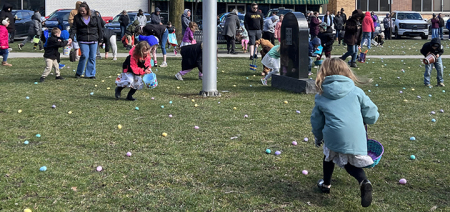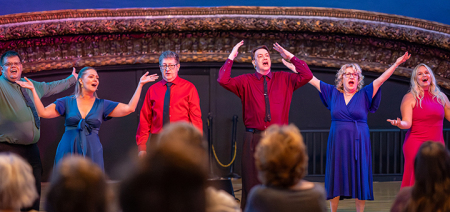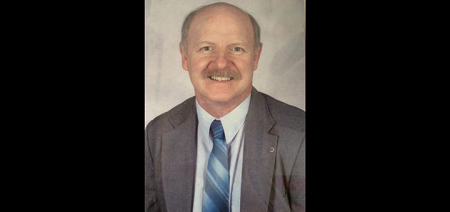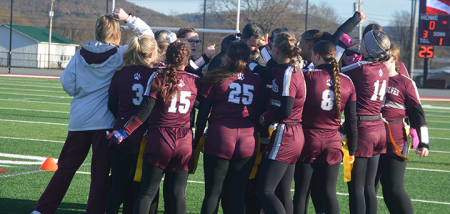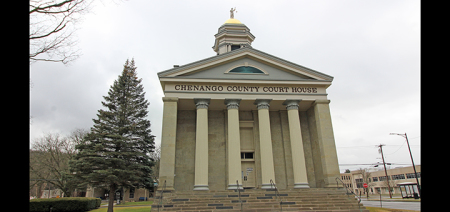Hero Worship Eyes
Published:
December 5th, 2014
By:
Shelly Reuben
From the day Francis met Will—the same day that they became partners—it was as if, for her, the rest of the world ceased to exist.
Oh, she was polite enough to their colleagues, although they always seemed to like her more than she liked them. And Francis was excruciatingly patient with the public, particularly children and particularly during safety awareness programs at town functions or at county fairs, because patience had been part of her training with the state police.
But in the grand scheme of things, Francis’s world was divided unequally into two parts. Ninety-five percent of her loyalty belonged to State Trooper William McDermott. Five percent belonged to everybody else. And that only if Francis was certain that Will didn’t need her.
You would think that this would have caused problems for him at home. Many law enforcement marriages had been broken up over less.
Not the McDermotts.
Elayne McDermott actually liked her husband’s partner, and after particularly grueling tours of duty, she often prepared special meals for Francis. Their daughter Pug—short for “pugnacious,” a personality trait and a nickname (her real name was Penelope, which she hated)—was also a fan of Francis. Periodically, she would drag her outside for long walks in the woods or take her on conspiratorial hunts for rocks, butterflies, or birds, depending, that day, on whether Pug wanted to be a geologist, an entomologist, or an ornithologist when she grew up.
Francis enjoyed the attention that she received from Will’s family, and she always tried to respond to kindness…in kind. But whenever courtesy did not demand some sort of a mandatory response, her eyes always swiveled back to Will.
“You’d think she’d be ashamed to let anybody to see her looking at you like that,” Will’s lieutenant snorted derisively.
Within earshot of Francis.
Who just ignored the comment, and followed Will out to their truck.
“Years are funny things,” Myron McDermott once observed to his grandson when recounting to Will his experiences as a Royal Canadian Grenadier Guard during World War II.
“You fight shoulder-to-shoulder with a man that maybe you only knew for six months, and maybe he’s been dead for over fifty years, but he’s still the best friend you ever had, and he’s still the best man you ever knew, and you still miss him every day of your life.”
After the war, Will’s grandfather moved to the United States, became an American citizen, and joined the state police.
Will’s father was a biology teacher. His mother was a chef.
But Will always knew whom he took after, and he always knew what he was going to be. He went to college and graduated with a bachelor’s degree in history, to please his parents. A year later, when he was twenty-two years old, he became a state trooper, to please himself.
He had been in the job for seven years before he was teamed with Francis, and they took to each other like two hands playing the same piece on a piano. They tracked methamphetamine labs together; they apprehended bank robbers; they arrested drug dealers; they helped the NTSB and local authorities to locate body parts and identify victims after that terrible crash of the 747 airplane over Henderson Bay. And one time, they even guarded a newly elected president.
The disappearance of Gina Sperling was grueling, back breaking, and punishing work. Over the course of that eight-month investigation, Will spent so much time with Francis…often working seven-day weeks and eighteen-hour days…that Elayne McDermott laughed to her husband, “You should have married Francis instead of me!”
Elayne worried about Will not getting enough sleep and not eating the right food, because their searches took them through rocky fields and hostile marshes. She worried about Francis catching a cold or breaking a leg. Pug, during those heart wrenching eight months, desperately worried about and missed them both.
She and, of course, everybody else, was also terrified for Gina Sperling.
Gina was two years older than Pug, but went to the same school.
Gina’s mother was in Elayne McDermott’s book discussion club, and her father owned the hardware store where Will bought everything from thumbtacks to grass seed. For the people in their hometown, Gina Sperling’s disappearance was more like a vicious kick in the gut than an active criminal investigation, and searching for her bore less of a resemblance to a rescue mission than it did to a holy crusade.
Girl Scout troops held bake sales to earn money so that they could order thousands of “Missing Child” flyers from the local print shop.
Boy Scout troops tacked the flyers to light poles and tree trunks, and went from shop to shop, asking merchants to tape them conspicuously on their front doors.
Diane and Raymond Sperling gave tear drenched television interviews appealing for their daughter’s return to Gina’s kidnappers…if she had been kidnapped. They put her photograph on shopping bags, billboards, and milk cartons that were then distributed throughout the state.
None of that did any good, though, because when the little girl was finally found, it was Francis who found her. Or what was left of her. With Will less than thirty seconds behind.
And it was Will who later tracked down and apprehended her killer.
Gina Sperling’s disappearance had been Will and Francis’s most notorious case.
Their last case wasn’t as time consuming or as spectacular. When it doesn’t involve a child, an airplane, or a celebrity, they never are.
It concerned a turf battle between warring motorcycle gangs over the distribution and sale of illegal weapons. Three days earlier, in the parking lot of a small rural airport, Orlando Neff, head of a group of thugs that called themselves Satan’s Plague, was gunned down. A day later, Neff’s second-in-command, Elliot Feaster, was run over by a stolen taxi-cab outside a coffee shop in the town of Prescott. The shop’s patrons, horrified to be standing next to a bare-chested brute in a leather vest whose arms were covered with swastika tattoos, held their communal breaths until he had paid for his crème brûlée latte and left the store.
Two days after that, it was on a Friday morning, Neff and Feaster’s double-funerals took place.
County narcotic cops and their DEA counterparts estimated that upward of 1,000 motorcycle gang members from all over the state would be there.
Sheriff Clifford Capstan stated aloud what most of the cops had been thinking.
“I don’t care if those bastards shove dynamite sticks up each others’ butts and light the fuse, as long as they drive across the county line before the shit hits the fan.”
But law enforcement wasn’t destined to get its wish.
The burial site for the dead bikers was a municipal cemetery less than half-a-mile north of Prescott, on a very publicly owned piece of land.
The sheriff’s department took on the job of surveilling the road.
State police officers would be patrolling the interior perimeters of the cemetery.
Will and Francis would be graveside.
Witnesses to the gunfire at the airport and to the hit-and-run outside the coffee shop had provided descriptions of the shooter and the driver. Composite sketches of each were drawn, and the two sketches were compared.
Both were of the same man.
Will’s job inside the cemetery was to look at faces and to identify the killer.
That was all that he had to do.
It was something he was good at.
All Francis had to do was to accompany Will.
She was good at that, too.
The internment was presided over by Father Desmond Babington, Orlando Neff’s uncle and the local parish priest.
As he recited the blessings (it was said that he had loathed his nephew, but loved his sister enough to conduct the services), swarthy heads swathed in bandanas were bowed in prayer. Will’s eyes set upon, studied, and evaluated the faces of every biker in the tight area around the graves.
This one’s nose, he thought, was too big.
His eyes moved to another.
That one had pock-marked skin.
Will continued to study faces.
Ears to small.
Forehead too high.
Lips too narrow.
Eyes too far apart.
Eyebrows too thick.
And then, like Goldilocks sampling porridge in the house of the three bears, his eyes suddenly latched onto a jowly face with wide nostrils and a protruding lower lip. A face that matched the composite sketch and, like the last bowl of porridge, was “just right.”
There was a problem, though. The eyes in the face at which Will was staring were staring back at him, too.
In retrospect, Will wondered (and would always wonder) if his reflexes that day had been unforgivably slow, or if the biker’s reflexes had been impossibly fast.
And he wondered (and would always wonder) about Francis.
How had she known?
How. Had. She. Known?
The biker drew his gun.
Francis, too far away to take him down but not too far away to protect her partner, leaped in front of Will and, in effect, turned her body into a shield.
Two bullets slammed into Francis before the other troopers in the cemetery un-holstered their weapons, targeted the biker-shooter and opened fire.
He was dead before he hit the ground.
A thousand badass tattooed mourners leaped over tombstones, tripped over marble angels, jumped on their motorcycles, and roared away.
Francis was still alive.
A photographer from The Evening Sun took thirty-seven pictures of the melee in the cemetery that day. The newspaper ran nineteen of them in a full-page spread.
But there were two photographs, out of respect for the victims, which they did not print.
One was of Francis in full flight, her face contorted in pain, as the first bullet hit her in the chest.
The other was of William McDermott, kneeling in the grass; his arms around his partner, her head in his lap and his face a mask of grief, at the very moment that Francis died.
Her entire life, Francis had not been close to anyone. Anyone, that is, except the McDermotts.
Dogs in K-9 police units always live with their handlers, and they usually become members of the family. Francis had been a McDermott from the day that Will brought her home and had probably been destined to be a McDermott from the day that she was born.
After she died, Elayne and Pug tried to get Will to open up about his beloved partner and their beloved pet.
But Will could not talk about Francis.
Not yet.
Lieutenant Marigold told Will to take a week off from work to deal with the loss. Having known State Trooper McDermott for over five years, he fully expected Will to decline.
He did not.
He took ten days off instead.
He went to see former Royal Canadian Grenadier Guard Myron McDermott.
“Tell me about him,” Will demanded.
And he did not have to explain to his grandfather whom he meant.
Grandpa Myron filled a large percolator with water and made a pot of coffee. He sat down at the kitchen table and he motioned Will to take the other chair. Then he began to talk.
He told his grandson where Sgt. Hurwitz had come from. How old he had been when he joined up. How his eyes had blazed when, armed only with a pistol, he attacked two German machine guns and captured twenty-five enemy soldiers. How his moustache had bristled when, accompanied by fifteen Grenadier Guards, he destroyed eleven German anti-tank guns. How their unit had killed fifteen Germans, captured thirty-one others, and opened a kilometer-wide gap in the German front line. And finally, he told Will how his Sgt. Samuel Moses Hurwitz, the highest decorated non-commissioned officer in the whole of the Canadian Armored Corps, had been shot behind enemy lines, captured, and died.
Myron stopped talking.
Will sat for a while without saying a word.
Then he began.
He told his grandfather about Francis. About the methamphetamine labs they’d discovered. About the escaped mental patient they’d found wandering into traffic on Route 88. About the drug dealers, wife beaters, child molesters, bank robbers, and murderers that they had apprehended. And about the quiet, silent hours that they had spent alone in Will’s trooper truck, with his hand sometimes resting on Francis’s head or scratching the ruff of her neck, and accepting the way that his partner stared lovingly at him with fearless, faithful, hero worshipping eyes.
Myron McDermott refilled both of their mugs with coffee.
He raised his cup. “To Francis,” the old warrior said.
Will raised his cup. “To Sgt. Hurwitz.” He said.
They clicked cups.
And then both men cried.
This story was originally published in The Forensic Examiner.
Shelly Reuben has been nominated for Edgar, Prometheus, and Falcon awards. She is an author, private detective, and fire investigator. For more about her books, visit www.shellyreuben.com.
Copyright © Shelly Reuben, 2014
Author: Shelly Reuben - More From This Author
Comments
